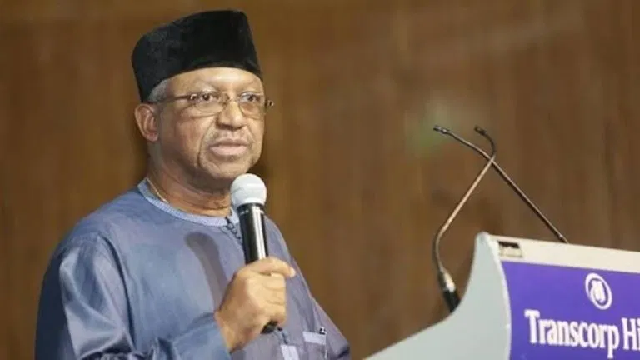In a bid to curtail the spread of COVID-19 in the country, the Federal Government of Nigeria says it would be focusing on communities.
Minister of Health, Dr. Osagie Ehanire who disclosed this at the Presidential Task Force briefing, added that the move was necessary due to available evidence of community transmission of COVID-19
Dr. Ehanire stated that there will be more community testing and social mobilization at the grassroots to ensure physical distancing and advisories on the use of masks or improvised face coverings like handkerchiefs or scarfs over the mouth and nose to reduce risks of transmission.
He said the revised case definition includes:
- All patients with acute respiratory distress syndrome
- Contacts of people confirmed who have COVID-19, with fever and respiratory tract symptoms
- Persons with fever and respiratory tract symptoms of unknown cause
Health Workers
The Minister also highlighted the risk to health workers in this COVID-19 response by stating that “patients with mild symptoms are still very highly infectious, mild symptoms in one person could be deadly infectious in another”.
Dr. Osagie urged all health workers to adhere to government instructions and regulations by utilizing Personal Protective Equipment (PPE), maintain a high index of suspicion for COVID-19 and protect themselves, loved ones and colleagues.
He also advised health professionals against private or secret management of people who have COVID-19 outside of accredited health facilities saying “we cannot afford avoidable morbidity and mortality”.
He said that private facilities must obtain accreditation to treat this highly infectious disease and that unauthorized practitioners engaging in treatment of COVID-19, run the risk for being shut down for decontamination.
Cluster Testing
The Minister commended Lagos State and the Federal Capital Territory (FCT) for enhancing case findings by conducting house to house and cluster testing based on epidemiological assessments.
“This strategic scale-up of testing over the next two weeks will go a long way in detecting, testing and treating people with COVID-19”, he reiterated.
Increased Testing
Dr. Osagie Ehanire noted that the national testing capacity has increased to 3,000 per day in 13 molecular laboratories nationwide activated by the Nigeria Center for Disease Control (NCDC).
He also stated that two more laboratories are scheduled to come online in Borno and Sokoto states.
Dr Ehanire said that states had been supplied sample collection kits and are encouraged to develop innovative methods to improve testing capacity by engaging the private sector to outsource and diversify these collection sites and improve logistics support.
“The disease had been stereotyped, discriminated against and labeled poorly. Unfortunately, the stigma can prompt social isolation of persons or groups and drive people to hide the illness, prevent them from seeking health care immediately, and discourage them from adopting healthy behaviours. This could cause a situation where the virus is more likely to spread and increase the difficulty of controlling the COVID-19 outbreak” the Minister said.
He advised persons tested positive to COVID-19 enter into accredited isolation and treatment centres for proper management “this not only gives them prospects of survival and recovery but protects their family and friends, domestic and office staff and the community from infections”.
He encouraged citizens to cooperate with case managers who will meet all expectations of security, privacy, and comfort.
He urged citizens not to stigmatize persons who had recovered from COVID-19, “stay safe at home, if you must go out practice physical distancing, wash hands regularly or use sanitizers and sanitize surfaces thoroughly”.
Source: VON













